African Climate Science Frontiers: Addressing Priority Research Gaps to Inform Adaptation Decision-Making in Africa
Frontiers in African Climate Science Research and Applications
Prepared by the Steering Committee for the African Climate Conference 2013: Ernest Afiesimama, Richard Anyah, Ghassem Asrar, Seleshi Bekele, Adama A. Diallo, Brad Garanganga, Richard Graham, Bruce Hewitson, Cheikh Kane, Pete Lamb, Filipe Lucio, Simon Mason, Joseph Mutemi, Ousmane Ndiaye, Anna Pirani, Fred Semazzi, Mxolisi Shongwe, Arame Tall, Wassila Thiaw, Seydou Traore, Hassan Virji, Richard Washington, Pius Yanda.
This is a 'living' document and comments are welcome. Reviews are currently being received and incorporated into the next version of the document. If you wish to contribute, please email acc2013@climdev-africa.org with the subject 'Frontiers'.
1.Introduction
The Africa Climate Conference 2013, due to be held October 15-18, 2013 in Arusha (Tanzania), aims to narrow the communications gap currently existing between African decision-makers and climate scientists and to develop a coordinated collaborative research strategy to enhance climate science outputs so that they may better inform climate early warning responses and adaptation in Africa.
This document outlines, in the context of global climate initiatives, the key research frontiers for African climate that will be addressed. In a departure from usual practice, motivated by the imperative of ‘mainstreaming use of climate information in decision making’, research priorities are ordered according to their alignment with emerging priority needs for African users. As part of its activities the conference will review and validate these ‘frontier’ research priorities (see also the conference concept note).
2.The Global context
Africa may be considered a natural partner in initiatives to advance and make practical use of international climate research. African climate variability is of fundamental importance to many global climate phenomena currently targeted by the international research community. Examples include at sub-seasonal timescales the Madden-Julian Oscillation (MJO) – important for intra-seasonal rainfall variability in Africa; at longer timescales, basin-scale sea surface temperature fluctuations – important drivers of African seasonal drought and flood, and at still longer timescales, decadal ocean variability - a potential driver of decadal oscillations in rainfall such as seen in the Sahel.
The World Climate Research Programme (WCRP), has defined global research frontiers and imperatives and, through its core projects, is delivering research and databases to advance, among other topics, climate model improvement, sub-seasonal to seasonal prediction, decadal prediction, climate change scenarios and understanding, climate extremes prediction and sea-level rise. For sub-seasonal timescales, collaborative projects with the World Weather Research Programme (WWRP) are addressing predictability and interactions between weather and climate timescales – notably the role of tropical convection. In these initiatives the challenge of making research results useful and easily accessible to end users such as adaptation planners and policy makers is explicitly recognized. Adequate observations of climate are essential to all the above activities and in this context the Global Climate Observing System (GCOS) programme is coordinating development of the observational resources needed for climate research, monitoring, prediction and national development.
The year 2012 has seen the approval of the Implementation Plan of the Global Framework for Climate Services (GFCS) - a major international initiative developing under the United Nations (UN) system and led by the World Meteorological Organisation (WMO). Building on the activities and initiatives described above, as well as others, the GFCS aims to mainstream value-added climate information for decision makers through user-driven and science-based activities. The structure of the GFCS is based on 5 components or Framework ‘pillars’: observations and monitoring; research, modeling and prediction; a system for climate service provision; a user interface platform and capacity building.
There is thus a strong context of global infrastructure development, research and other initiatives with direct relevance to the African continent. The African Climate Conference 2013 will provide a forum to assemble and review these activities, and a means of channeling their relevance for Africa in a coordinated focus on African climate research and user-driven climate services.
3.The Africa perspective
From the applications and communication viewpoint, Africa has pioneered the Regional Climate Outlook Forum (RCOF) process, now a global activity endorsed by the GFCS Implementation Plan. Through coordination of RCOFs and other activities, the regional climate organizations in Africa (see below) have unparalleled experience in condensing climate science outputs and communicating consensus information to leading regional users and media that will be of great value in the process of pulling future research into use.
In addition to global research programmes, there are also many climate initiatives focusing on the African continent, either with a continental or regional remit. These encompass major multi-partner programmes as well as smaller national initiatives. A few current research initiatives are briefly described below. The reader is referred also to the summary of selected Africa climate projects in the CLIVAR Exchanges issue #60 (October 2012), a special issue on Africa http://www.clivar.org/publications/exchanges .
ClimDev-Africa, is an integrated multi-partner programme addressing climate observations, climate services, climate risk management, and climate policy needs in Africa. The African Climate Policy Centre (ACPC) was established to serve as the knowledge-management and policy-facilitation arm of ClimDev Africa. As one of their functions, ACPC coordinate the annual conferences on Climate Change and Development for Africa (CCDA). The African Development Bank’s support for ClimDev includes funding for the AfriClimServ project – which is delivering institutional strengthening to African regional climate organizations, specifically:
- The African Centre for Meteorological Applications for Development (ACMAD)
- The CILSS-ECOWAS Agrometeorology and Hydrology Regional Centre (AGRHYMET)
- THE IGAD Climate Prediction and Applications Centre (ICPAC)
- The Southern African Development Community Climate Services Centre (SADC-CSC)
The WCRP’s CLIVAR and GEWEX (Global Energy and Water Exchanges) components have a joint panel on African climate, which promotes and coordinates activities on observations research and modeling for the African continent. ACPC and the CLIVAR-GEWEX Africa panel are joint coordinators of the African Climate Conference 2013.
The WCRP Coordinated Regional Downscaling Experiment (CORDEX) program has the aim of developing an international coordinated framework for generating improved regional climate change projections worldwide. Results from the CORDEX analysis will be used as input to the IPCC Fifth Assessment Report as well as to meet the growing demand for high-resolution downscaled projections to inform climate change impact and adaptation studies. The Climate Systems Analysis Group of the University of Cape Town is coordinating African groups in analysis of results for the Africa domain through the CORDEX-Africa analysis programme.
The African Monsoon Multidisciplinary Analysis (AMMA) programme has brought new knowledge regarding processes governing the West Africa monsoon, and also on the processes through which the climate system impacts on the socio-economics of West African nations. Experience from AMMA, one of the largest multi-disciplinary research efforts ever attempted in the area of climate and environment, is an invaluable resource for future climate and impacts research in Africa.
The Climate Science Research Partnership (CSRP) between the UK’s Department for International Development (DFID) and the Met Office Hadley Centre is a programme with pan-African scope aimed at improved understanding of African climate and its representation in climate models, development of user-driven monthly-to-decadal prediction products, advancement of rainfall monitoring and climate event attribution and climate science capacity building.
The Hydroclimate Project for Lake Victoria (HYVIC) is proposed as a GEWEX Hydroclimatology Panel (GHP) Regional Hydroclimate Project (RHP). HYVIC’s aim is to understand the relative role of the hydrological components of the water balance over the Lake Victoria Basin in determining the trend of decreasing water resources during the recent decades and to determine the timing of the anticipated reversal during the next few decades in response to the projected increase in rainfall over the region.
As an example initiative in enhancing communication between climate scientists and users, the Humanitarian Futures Programme, based at Kings College London, is coordinating collaboration between climate scientists and meteorologists from national meteorological departments and universities in Kenya, Senegal and the UK, and policymakers from a number of international humanitarian organizations and the partners and communities with whom they work. Together, these partners are undertaking two demonstration studies in Senegal and Kenya to assess how climate science can better support humanitarian, disaster risk reduction and development decision-making.
The cross section of relevant global and Africa-focused initiatives outlined above is not by any means exhaustive but serves to demonstrate both the gathering body of knowledge on Africa climate and the strengthening of institutional infrastructure and scientist-user engagement – each aligned with developing global initiatives. The African Climate Conference 2013 is thus a timely assembly of all stakeholders and will accelerate the harnessing of this knowledge base to the service of decision makers and vulnerable communities in Africa.
4.Critical climate information needs for end users in Africa and related climate science knowledge gaps
The climate information gaps for African decision makers are listed in Table 1 in order of priority and as currently understood, and prioritized by the Scientific and Technical Steering Committee of the ACC2013, following a comprehensive consultation process with a wide range of stakeholders between January and December 2012. The list has been derived from a number of sources, including a consultation in Africa conducted by the CSRP programme (http://www.metoffice.gov.uk/csrp). The list was validated by mixed user-climate scientist working groups during the CCDA-II conference, held in October 2012. Presentation of the final list of frontiers at various stakeholder fora between October and December 2012, including the Future Earth Regional Workshop for Africa workshop held on October 31-November 2, 2012, led to the final adoption of the present list of Priority Frontiers of African Climate Research.
As follows, the list of Priority Frontiers in African Climate Research and Applications.
The associated information gap most closely aligned with each research frontier is given in the left-hand column of Table 1 with additional elaboration below – though it should be noted that progress on several of the frontiers would likely benefit the quality of information for a number end-user information needs and priorities.
1.Strategic ahead-of-season planning (1- month to 12-months lead range)
Considerable international focus has been placed over the last decade on research to improve model predictions of sustained sea-surface temperature (SST) fluctuations in the tropical Pacific (El Niño/La Niña events). Such events are very influential on seasonal climate particularly in the tropics and are key drivers of much African seasonal rainfall variability. A comparable effort now needs to be made to improve understanding and prediction of SST variability in other ocean basins (e.g. Indian Ocean, Tropical Atlantic) that have comparable impacts on African rainfall. The mechanisms by which signals from ocean variability are transmitted to remote atmosphere responses (teleconnections) also need to be better understood and represented in models.
Research has found increasing evidence that the land surface has important influences on climate processes important to stakeholders in Africa. This new understanding needs to be strengthened and applied in the initialisation and driving of monthly-to-decadal forecast systems – to enhance forecast performance and interpretation.
Potential benefits of advancing these research frontiers include more confident decision making in:
- Implementing early responses to expected drought and flood (in extreme years) – including in declaring projected food security status;
- Selecting crop types and cultivars for the growing season;
- Allocation of competed water resources, including for hydropower;
- Preparing mitigation strategies to minimize impacts on human and animal health.
- An additional benefit with cross-cutting impact would be increased credibility, usability and uptake of seasonal and multi-annual forecasts – leading to accelerated interaction between climate science and users, driven by increased usability and demand for forecasts.
2.Intra-seasonal risk monitoring and management to inform within-season operations (1-2 weeks to 40 days range)
The Madden-Julian Oscillation (MJO) is the dominant mode of intra-seasonal variability in the tropics. Improved understanding and modelling of its impact on the temporal distribution of African seasonal rainfall, including rains onset and cessation, is a key research frontier.
Convective systems, including mesoscale convective complexes, are key rain bearing systems in Africa. Correct representation of these processes and their links to the larger scale circulation is essential for realistic simulation of typical temporal variability in rainfall and thus to the capability to predict risks of prolonged dry spells or periods of heavy rain and other high impact events.
Potential benefits of advancing these research frontiers include more confident decision making in:
- Refining strategies based on seasonal forecasts (e.g. planting times and crop types)
- Choosing in-season operational strategies e.g. crop protection, water management (i.e. reservoir spill-away), issuance of health advisories.
- Protecting life and livelihoods against heavy rain or heatwave events
3.Longer-term strategic planning/policy development (next 1-10 years)
Improved understanding of the drivers of natural decadal variability over Africa and its interaction with the climate change signal is needed. Some international modeling centres are developing decadal prediction systems dedicated to regional prediction of near term climate change and geared towards providing early guidance on the likelihood of changes in seasonal rainfall patterns, hazardous weather and extreme climate events, such as recurrent drought in the Sahel and the 2011 Greater Horn of Africa drought. Comprehensive evaluation of these systems is needed and where appropriate exploration of potential for tailored multi-annual to decadal forecast products, to be trialed with users (adaptation policy developers and national planners).
Potential benefits of advancing these research frontiers include more confident decision making in:
- Selection of food security strategies (based e.g. on drought frequency risk)
- Infrastructure planning (power plants, roads, housing, urban development)
- Insurance sector planning and development, with development of more relevant products for African stakeholders
- Improved science-based input into national adaptation planning and policy development.
4.Climate change adaptation policy development/planning (next 50 years)
Improved understanding of processes and feedbacks relating to the carbon cycle, water cycle, aerosols, vegetation and their representation in climate models is needed to improve the physical basis of climate scenarios for Africa. The role of land-use changes over Africa in climate change impacts also requires further research. The CORDEX program is making significant contributions to the development of climate change scenarios for Africa, but more needs to be done to meet the need for robust climate change scenarios at geographical levels appropriate for end-user decision-making.
There is also a growing tendency to attribute all climate extremes to effects of global anthropogenic change, This is unhelpful in policy making – because natural variability, and e.g. local land-use changes, can also play dominant roles. Further assessment and refinement of methodologies for near-real-time attribution of climate events is needed to provide timely analysis to governments/decision makers. An important focus is to improve understanding of changes in the Greater Horn of Africa region, where recent drying trends and drought episodes appear counter to the predicted longer-term change to wetter conditions. Also, the recent greening of the Sahel as a long-term trend of decadal cyclical return of rains needs to be further probed into.
Potential benefits of advancing these research frontiers include more confident decision making in:
- Regional and national planning to adapt to and mitigate the impacts of global climate change.
1.TABLE 1: Summary of Priority Climate Research Knowledge Frontiers in Africa, to be urgently overcome to address priority end-user information gaps.
Priority |
Decision-making process and end-user information gaps |
Climate Research Frontier (CRF) needed to be overcome to address priority end-user information gap |
| 1. |
Process: Strategic ahead-of-season planning (1- month to 6-months lead range). Information gaps:
|
Theme: Seasonal prediction Key research frontier areas:
|
|
2. |
Process: intra-seasonal risk monitoring and management / within-season operations (1-2 weeks to 40 days range) Information gaps:
|
Theme: Sub-seasonal prediction Key frontiers areas:
|
|
3. |
Process: Longer-term strategic planning/policy development (next 1-10 years) Information gap:
|
Theme: Decadal prediction Key frontiers:
|
|
4. |
Process: climate change adaptation policy development/planning (next 50 years) Information needing improvement:
|
Theme: Climate change scenarios Key frontiers:
|
Table 1: Priority end-user Information needs & climate research knowledge frontiers in Africa.
Cross-cutting issues and capacity development needs
There are a number of areas where research and development is crucial to make climate science outputs useful to decision makers. These cut across the 4 primary ‘frontier’ themes of Table 1, and will need to be addressed concomitantly, in order to have new climate research outputs truly serve the needs of African end-users, policy-makers and planners, in need of improved climate services to inform their adaptation and risk management decisions now, up to the mid-to-late 21st century. These five additional themes will be important at the African Climate Conference 2013, and are summarized in Table 2.
1. Assessing the current vulnerability due to recent climate events
The lack of adequate ground-based observational networks over much of the African continent is well documented. This seriously hinders abilities to assess the current state of the climate in terms of e.g. rainfall deficit/surfeit and thus the potential for flood/drought. Lack of ‘ground truth’ also hampers research and evaluation of climate modeling/prediction. There is as such an urgent need for development of both sustained observational networks and also for temporary intensive observational campaigns (such as successfully achieved for West Africa by the AMMA programme).
Equally urgent is also a need to develop impact datasets, across all climate-sensitive sectors (e.g. crop yields, river flows, health/hospital admission statistics) to aid development and targeting of applications models.
2. Decision making at local scales
Decision makers need climate information pertinent to the geographical scales for which decisions are made, e.g. river basins and agricultural regions, down to the farm level. Reliable output from current global operational prediction systems (on seasonal and longer timescales) is typically available only at much larger scale (e.g. regional or continental). Output from global systems can be ‘downscaled’ to provide greater geographical detail using Regional Climate Models, and both dynamical and statistical techniques. However, greater understanding and improvement of the downscaling process is needed as well as detailed investigation of the potential benefits to decision making.
Initiatives to develop an ‘in house’ capability for regional downscaling, including of seasonal forecasts, in African centres have been started but need consolidation and promulgation to all regions. Where benefits are demonstrated, these activities can be developed into operational services running in relevant regional African centres. Benefits include further capability to refine decisions on e.g.:
- Which regions are most at risk from dry/heavy rain spells
- Which river basins are most likely to be affected by surfeit or deficit;
- The risk and location of heatwaves.
3.Estimation of the impacts of climate variability and change
Research on integration of climate predictions on all timescales (seamless forecasting) with application modelling remains a priority to help optimise usefulness to users. Key areas include: agriculture and food security (regional crop yields; crop pests and diseases); health (movement and onset of diseases); water resources and energy (river flows, irrigation systems, hydro-electric systems). Select benefits include further improvements to:
- Selection of crop types and cultivars for growing season;
- Allocation of competed water resources, including for hydropower and irrigation;
- Preparation of mitigation strategies to minimize climate impacts on human and animal health.
4.Building credibility and confidence in predictions
To make prudent use of a forecast, users need a full characterization of its performance in readily understandable measures. Such assessments are most developed for seasonal forecasts, but in general they remain frontier areas for predictions on most intra-seasonal and longer-term climate timescales. A such there is a need to better characterize performance, credibility and confidence for predictions on all timescales, most notably intra-seasonal and longer-term climate forecasts, in consultation with end-users, to facilitate use of forecasts across timescales for early warning > early action.
5. Mainstreaming climate services for all timescales
WMO has fostered international cooperation on development of operational provision of global seasonal forecast information that is now increasingly used in Africa by Regional Climate Outlook Forums and National Hydro-Meteorological Services. Collaboration with African users is required to accelerate similar systems for communicating user-relevant products on all climate timescales – where prediction skill can be demonstrated.
Climate information is frequently provided in formats that are either not useful and/or not readily understandable to end-users. Communication of climate services and enhanced understanding between providers and users of climate information are complex areas that remain at the frontiers of research.
Finally, among climate-sensitive communities in Africa there is a strong tradition of and reliance on traditional knowledge systems for climate prediction. Open partnership between practitioners/users of such traditional systems of climate prediction and climate scientists is needed to bridge the cultural divide and improve the local relevance of scientific forecasts for local decision-making. Strategies for achieving this effectively remain a frontier of research.
No. |
Decision-making process and information gaps |
Climate Research Frontier (CRF) |
|
1 |
Process: Assessing the current vulnerability due to recent climate events Information gaps:
|
Theme: Observation system and database development Key frontier areas:
|
|
2 |
Process: decision making at local scales Information gaps:
|
Theme: Downscaling Key frontier areas:
|
|
3 |
Process: Estimation of the impacts of climate variability and change |
Theme: Applications modelling Key frontiers:
|
|
4 |
Process: building credibility and confidence in predictions |
Theme: Forecast evaluation Key frontiers areas:
|
|
5 |
Process: Mainstreaming climate services for all timescales |
Theme: Communication and climate service provider/user interactions Key frontier areas:
|
Table 2: Cross-cutting areas of research and development crucial to make climate science outputs useful to decision makers in Africa.
- Log in to post comments
|
UN Economic Commission for Africa, Menelik II Ave. P.O. Box 3001, Addis Ababa, Ethiopia. Tel: +251 11 551 7200, Fax: +251 11 551 4416
World Meteorological Organization, 7bis, avenue de la Paix, Case postale 2300 CH-1211 Geneva 2 Switzerland. Tel.: +41 (0) 22 730 81 11 Fax: +41 (0) 22 730 81 81
|
Sponsors
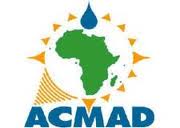 |
 |
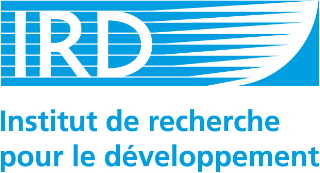 |
 |
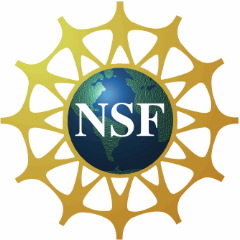 |
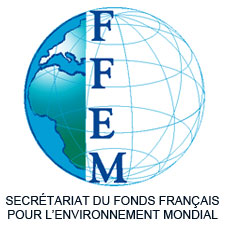 |
 |
 |
 |
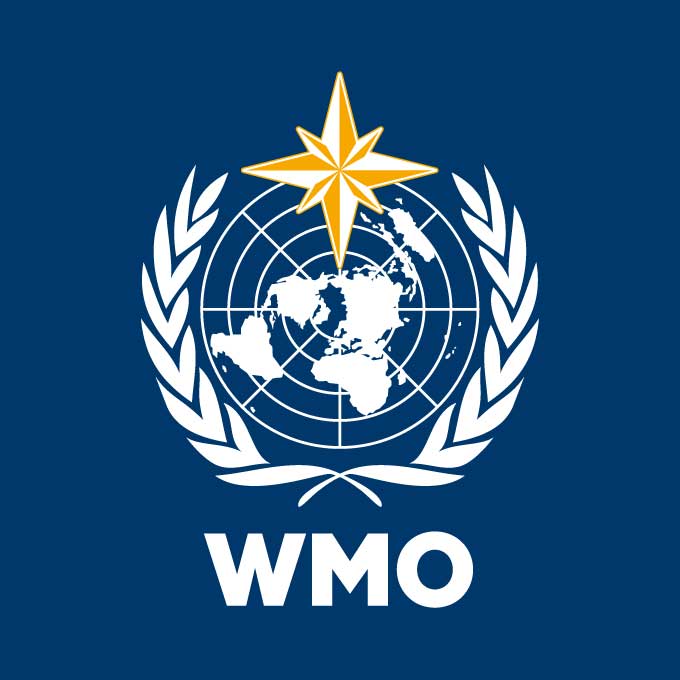 |
 |
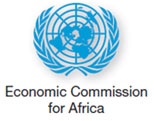 |
 |
 |
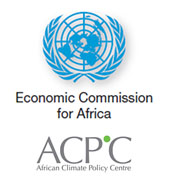

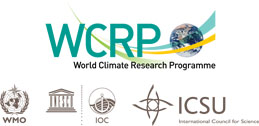



Comments
wish to attend
HI...MY UTMOST WISH TO ATTEND THE EVENT. +254 729706177